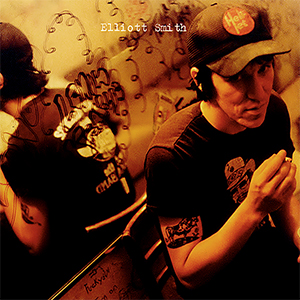Dylan wrote that the mythical images and visions in his head conjured up a world more real than the one he was living.
These are some of the questions that I think about upon reflecting upon Pan’s Labyrinth. Ofelia lives in a time of civil war in Spain. Her pregnant mother is in the throes of desperation, and finds security in a tyrannical husband after her husband, Ofelia’s father, died. Her mother wants Ofelia to call her new husband "Father" and tells her it’s only a word. Ofelia calls him "Captain." Ofelia and her mother move in with the Captain at a hillside post, where the Captain commands a group of Franco loyalists intent to crushing rebels in the countryside and their notions of an egalitarian society.
Ofelia finds refuge in her stories about fairies and magic, which her mother does her best to discourage.
 But Ofelia is not an ordinarily girl. She is followed by a fairy, who summons her to a labyrinth, where she meets a faun who tells her that she is a princess who has been summoned back to reopen a portal to a mythical world where she can take her rightful place beside her true father and mother.
But Ofelia is not an ordinarily girl. She is followed by a fairy, who summons her to a labyrinth, where she meets a faun who tells her that she is a princess who has been summoned back to reopen a portal to a mythical world where she can take her rightful place beside her true father and mother.
In order for her to arrive there, she must accomplish three tasks. And that is where our story and Ofelia’s magical and frightening adventures begins, while the Captain is attempting to exact control over both his camp and the rebels.
We all live in at least in two worlds, or at least I do. The one we live outside, and the one we live in our head. Both needs to be tended to, cultivated. If the one in my head is not properly nourished, guided, and honored, it will lash out. That is why I write, although not as much as I should.
That is why I listen to music, read, and watch movies like Pan’s Labyrinth. That is why I love and hug my daughter.
Maybe I expect too much, that others around me must share the same world as the one in my head, and maybe that is not realistic or possible. And the fact that others don’t or can’t share it makes me undermine my relationship with them. Perhaps that is too judgmental. Maybe the world in my head is for my head and the other creative souls who are receptive to it.
I don’t know what I want but I know I must honor my inner world. I just don’t know how.
Maybe there will be a faun or fairy to guide me. Maybe there will be magic. Maybe the signs are there and I have yet to read them.
What makes me laugh? Am I able to let go? Am I able to see the fantasy in me and around me?
 On another note, I am very excited about the upcoming movie, "Across the Universe", with a backdrop of Beatles lyrics, songs, and lives.
On another note, I am very excited about the upcoming movie, "Across the Universe", with a backdrop of Beatles lyrics, songs, and lives. My growing preoccupation with notions of fantasy have brought me closer to the Beatles. I listen and I hear their songs differently now. There is more depth to their meanings.
Words are flying out like
endless rain into a paper cup
They slither while they pass
They slip away across the universe
Pools of sorrow waves of joy
are drifting thorough my open mind
Possessing and caressing me
Jai guru deva om
Nothing's gonna change my world
Nothing's gonna change my world
Nothing's gonna change my world
Nothing's gonna change my world
Images of broken light which
dance before me like a million eyes
That call me on and on across the universe
Thoughts meander like a
restless wind inside a letter box
they tumble blindly as
they make their way across the universe
Jai guru deva om
Nothing's gonna change my world
Nothing's gonna change my world
Nothing's gonna change my world
Nothing's gonna change my world
Sounds of laughter shades of life
are ringing through my open ears
exciting and inviting me
Limitless undying love which
shines around me like a million suns
It calls me on and on across the universe
Jai guru deva om
Nothing's gonna change my world
Nothing's gonna change my world
Nothing's gonna change my world
Nothing's gonna change my world
Jai guru deva Jai guru deva











